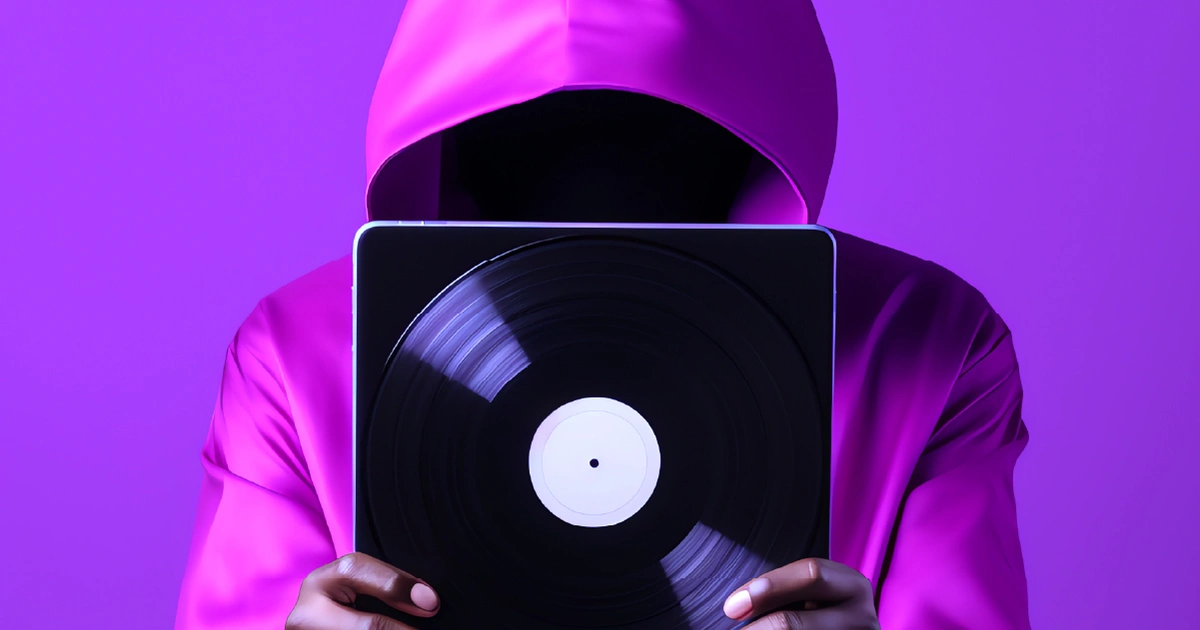
The Dark Side Of The Tune
Protecting artists from music streaming fraud and fake copyrights
in the era of AI
The music industry has long been an arena where innovation and technology have shaped how music is created and consumed. In recent years, a new wave of challenges has emerged, threatening the industry and artists’ livelihoods. Artificial intelligence (AI) is rapidly changing the industry, potentially revolutionizing music production, distribution and consumption. AI also poses new challenges and risks, including the proliferation of AI-generated music content, music deepfakes, fake music streams and fake copyrights.
The staggering scale of royalties lost to streaming fraud is shocking. While approximately 97% of streams are legitimate, more than $1 billion in royalties could be siphoned away globally due to fraudulent streaming activities. The economic effects on all interested parties in the music business chain should catalyze the music digital service providers (DSPs) to further their commitment to protecting their streaming content.
Streaming fraud
Streaming fraud is a broad term encompassing many behaviors, from unauthorized remixes to boosting play counts through hacked accounts or the creation of bot networks. These actions distort artists’ earnings and erode the integrity of streaming platforms. As more revenue is funneled to these fraudulent sources, legitimate artists receive lower royalty payments.
Some experts feel that streaming fraud is driven mainly by the profit motivations of non-consumer enterprises seeking to extract revenue from the music industry. The perpetrators employ tools used in online fraud — such as stolen account credentials and bots — to manipulate digital platforms for commercial gain.
Streaming fraud is becoming increasingly sophisticated, affecting artists at all levels. This highlights the urgent need for a comprehensive approach to counteract these fraudulent activities.
Fake streams
Fake music streams are created when bots or other automated systems artificially inflate the number of streams of a particular song or album. These can be used to manipulate music charts and streaming algorithms to generate fraudulent royalty payments.
Fake streams serve a multitude of purposes:
- Inflating play counts
- Fraudulently collecting streaming royalties
- Using identity theft to steal royalties from artists
This phenomenon has profound implications for artists. Streaming royalties on major music platforms are typically paid out from a fixed pool of money available to artists posting their music. As a result, payments fluctuate and are not set to a specific price point. When artists receive royalty payments from fake streams, they unfairly divert money from the already limited pool available to actual artists.
4 types of fake streams
To protect themselves, artists should be aware of 4 main types of fake stream scams:
- Click farms, bots and hacking
The most sophisticated form of streaming fraud is manipulating user profiles for streaming content. - Identity theft
Impersonating artists or releasing albums composed of leaked material is a growing problem. It can cause significant harm to an artist’s brand and earnings. - Playlist scams
Paying money to get on a playlist is a risky endeavor, as streaming platforms actively monitor for such playlists. Getting caught can tarnish an artist’s online reputation. - Looping scams
Leaving songs looping overnight or encouraging followers to do so is a deceptive practice that streaming platforms can detect, potentially resulting in a permanent ban.
Fake copyrights
Fake copyrights are created when someone falsely claims to own the copyright to a piece of music. This can be done by registering a fake copyright or by transferring a copyright to a shell company. Fake copyrights can be used to generate royalties from music that the claimant does not own.
The impact of fake copyrights on the music industry includes:
- Legal disputes over ownership and royalties
- Risk of artists losing control of their work
- Impediments to licensing and distribution
Protecting the future of music
The challenges presented by AI-generated music content are vast and complex. A collaborative effort across industry, governments and technology developers, using the right tools, technologies and expertise, is required to combat these challenges and prevent the loss of hundreds of millions of dollars.
Spotify is currently the giant by which other music DSPs must compete. A commitment from Spotify to employ technologies and personnel to fight dubious streaming material would illustrate positive leadership to other DSPs to follow the same path.
As artists navigate the complexities of the digital age, they must consider how AI-generated content will reshape copyright norms and intellectual property protections. With the growth of AI-driven platforms, ensuring fair compensation and a level playing field for all artists is essential.
Data-driven defense
Investing in a robust rights management software or service is the key to fighting copyright infringement. Being able to effectively and quickly search vast music catalogs for the original copyright holders is valuable for ensuring the proper interested parties are compensated for their legitimate work.
The power of data analytics and machine learning can be harnessed to detect anomalies in streaming data, copyright registrations and deepfake music. With cutting-edge algorithms, the industry can stay ahead of those seeking to manipulate it.
Reality check
Protecting the music industry from the billion-dollar threat of fraudulent streaming activities requires a multifaceted approach, from enhancing fraud detection to establishing a robust legal framework. Embracing technological advances is essential, but it must be done responsibly, with a commitment to transparency, fairness and the preservation of the artistry that makes music so powerful.


